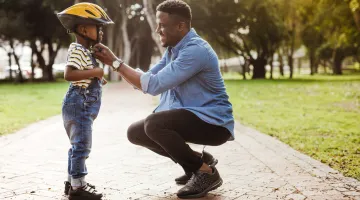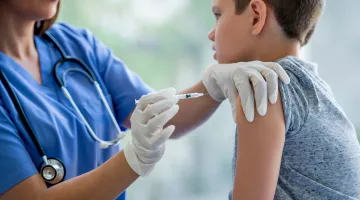Frequently Asked Questions about the Pfizer-BioNTech Vaccine for 5-11 Year Olds
Author

Jeremy Warhaftig, MD, Pediatrician
Earlier this week, the CDC Advisory Committee on Immunization Practices approved the distribution of the Pfizer-BioNTech COVID-19 vaccine to children 5 through 11 years old.
This vaccine had already received an emergency use authorization (EUA) for that same age group from the FDA.
As a result, children 5 through 11 years old are now eligible to be vaccinated against COVID-19 — this has led to a number of questions from parents.
While it's impossible to answer every question, I've addressed some common questions I've heard from parents below.
Why should children be vaccinated against COVID-19?
While COVID-19 causes more severe illness in adults, children can still get sick.
Since the pandemic started, more than 100 children between the ages of 5 and 11 in the United States have died of COVID-19, while hundreds more have ended up hospitalized.
Additionally, COVID-19 infection can have long-term impacts on a child’s health, whether through “Long COVID” or the rarer Pediatric Multisystem Inflammatory Syndrome.
Taking proactive steps to prevent a child from getting sick, developing lifelong complications, or dying from COVID-19 is worth it – and that’s what the vaccine does.
What did data from the Pfizer-BioNTech clinical trials show?
The Pfizer-BioNTech trial featured more than 3,100 children between the ages of 5 and 11 from four countries around the world, including the United States.
The trial found that the immune response stimulated by the vaccine was comparable to the vaccine immune response in patients between the ages of 16 and 25.
The vaccine was found to be more than 90% effective at preventing COVID-19 infection. No serious side effects were detected.
Do children receive the same vaccine as teens and adults?
The make-up of the Pfizer-BioNTech vaccine is the same for children as it is for everyone else, but the dose is different.
Individuals between the ages of 5 and 11 will receive a 10 microgram dose, while individuals 12 years old and older will receive a 30 microgram dose.
Like older children and adults, children between the ages of 5 and 11 will receive two doses, three weeks apart.
Do children experience side effects from the COVID-19 vaccine?
Yes, children in the trials of the Pfizer-BioNTech vaccine did report some side effects. The most common side effects were sore arms or redness at the injection site.
Side effects were more common after the second dose.
Most occurred within two days after vaccination, and most went away within one to two days.
Overall, however, side effects were fewer among 5-11 year olds than they were in adults, and the side effects that did present were milder.
What about myocarditis?
Myocarditis, which is inflammation of the heart muscle, has been in the headlines as a rare side effect of some mRNA vaccines in adolescents and young adults.
There were no reported instances of myocarditis during Pfizer-BioNTech’s trial for 5-11 year old children.
While trial data is not a guarantee that myocarditis won’t occur, FDA modeling predicts the benefits of vaccination will far outweigh any risk of myocarditis.
Additionally, myocarditis following COVID-19 vaccination is much milder than myocarditis following COVID-19 infection. Cases after vaccination get better after 3-4 days.
If you'd like to do additional reading on the subject, I encourage you to read information from the FDA, Pfizer, American Academy of Pediatrics, and HealthyChildren.org.
Jeremy Warhaftig, MD is Chief of Pediatrics at South Shore Medical Center.
If you have more questions on the COVID-19 vaccine for children, join us on Nov. 16 for our free virtual information session, Ask the Pediatricians.
Author

Jeremy Warhaftig, MD, Pediatrician






